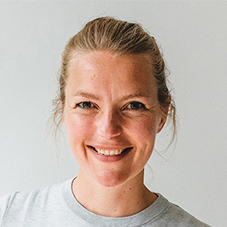Ceva Animal Health sees growth in Greece and Turkey

In 2013, Ceva Animal Health maintained its strong growth path, registering 6% revenue growth at a constant perimeter and exchange rates. The subsidiaries in Greece and Turkey outperformed, despite the economic situation in these countries. This is stated in the Annual Report 2013, which has been released today.
“Despite our revenue growth, 2013 was a difficult year for Ceva, as it was for all our competitors in the animal health market. As in 2012, the Eurozone remained in regression. The economies of emerging countries had relatively sustained growth, but their currencies were, in general, significantly impacted by between 20% and 30% depreciation”, Marc Prikazsky, CEO of Ceva Animal Health addressed. Total sales of the company in 2013 were 624 million Euro. Most of this is generated in the poultry business, followed by the ruminant, pig and pet business. 59.5 million Euro has been dedicated to research and development last year.
Poultry health
In the field of avian biology, Ceva formed a strategic alliance with Ecat in 2013. Ecat is a specialist in automatisation of hatcheries and in ovo vaccination equipment. Ceva’s partnership with Ecat enables Ceva to extend our range of services and equipment to our poultry customers beyond strict vaccination. In 2013, Ceva also registered two major products: Vectra 3D® in Europe and Cevac IBird® across large parts of the world.
Breakthrough China
Last year, Ceva consolidated its breakthrough in China. “The population of China consumes twice as much meat as that of the United States, particularly pork and poultry. Aware of the need to develop quality and increase the standard of living of its population, the Chinese government has made animal health one of its development priorities. Against this background, Ceva had a duty to forge partnerships with Chinese companies. This adventure began in 2011, with the creation of the Ceva Huadu joint venture. It continued in 2013 with the signing of three partnerships”, the CEO explained.
Activities in China
In May, Ceva signed a partnership agreement with the University of Canton, to test Vectormune® AI (a product already recognized for its efficacy in the US, Egypt and Bangladesh) against local strains of avian flu, which are causing considerable damage to China’s poultry producers and threatening human health. In July, Ceva teamed up with Sichuan Hengtong Animal Pharmacy, a company based in Sichuan, one of the largest swine producing areas in China, in a partnership agreement to develop pharmaceuticals for pigs and to build a modern plant capable of complying with the strictest quality standards. In September, Ceva signed a licensing and trademark agreement with Jinyu. The aim is to produce vaccines against brucellosis, a dangerous zoonotic disease, which is difficult to identify and eradicate and has its highest worldwide prevalence in Inner Mongolia.
Success in Greece and Turkey
The company saw exceptional results achieved by Turkey and Greece in 2013. This subsidiary succeeded in bringing its turnover back to the levels it enjoyed before the economic crisis. It is ranked second in the avian biology market, with a 70% market share in Gumboro vaccines. In ruminant biology it controls 34% of the market, mainly for small ruminants, sheep and goats. It gained six percentage points in the reproduction market, increasing its market share from 19% to 25%. The Turkish team saw the benefits of working together and their earlier work on reorganization. In spite of the contraction of the animal health market, their end-of-year results were exceptional with an operational result 20% higher than the previous year. “Our teams were particularly responsive in helping to contain an outbreak of Newcastle disease, which devastated many farms. Implementing hatchery vaccination, they delivered a highly effective solution. Our Turkish subsidiary is now the market leader for broiler vaccination, with almost 25% share”, the CEO said.












